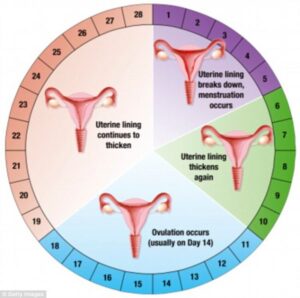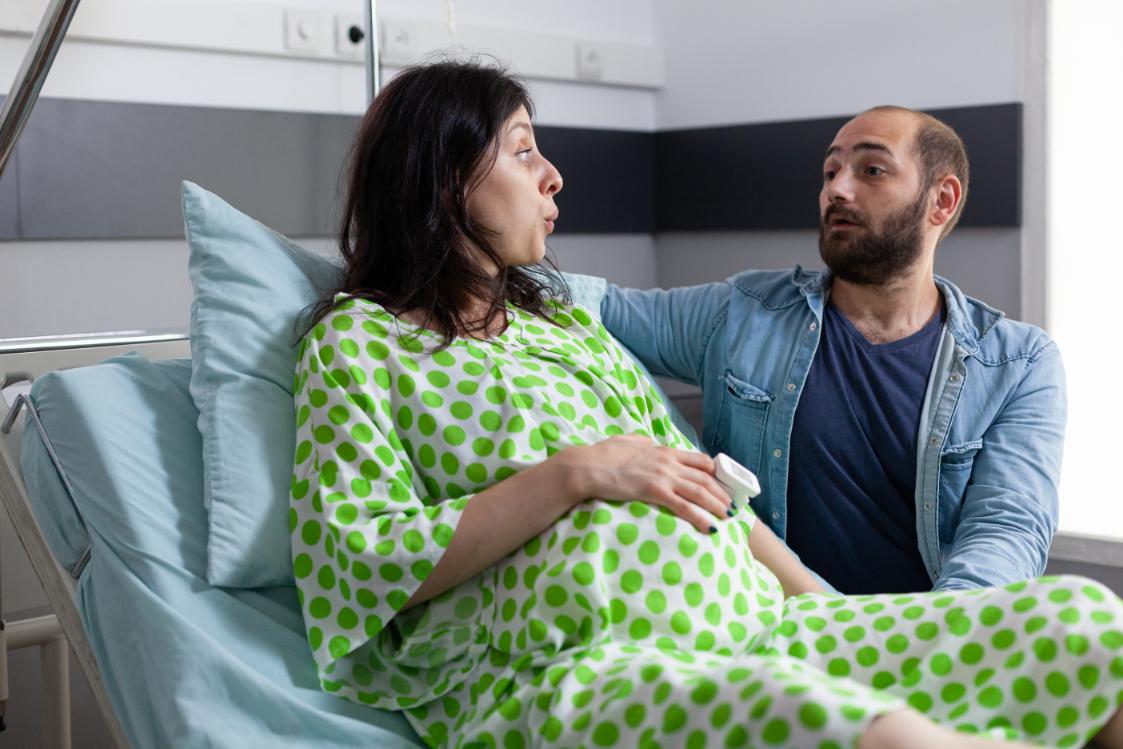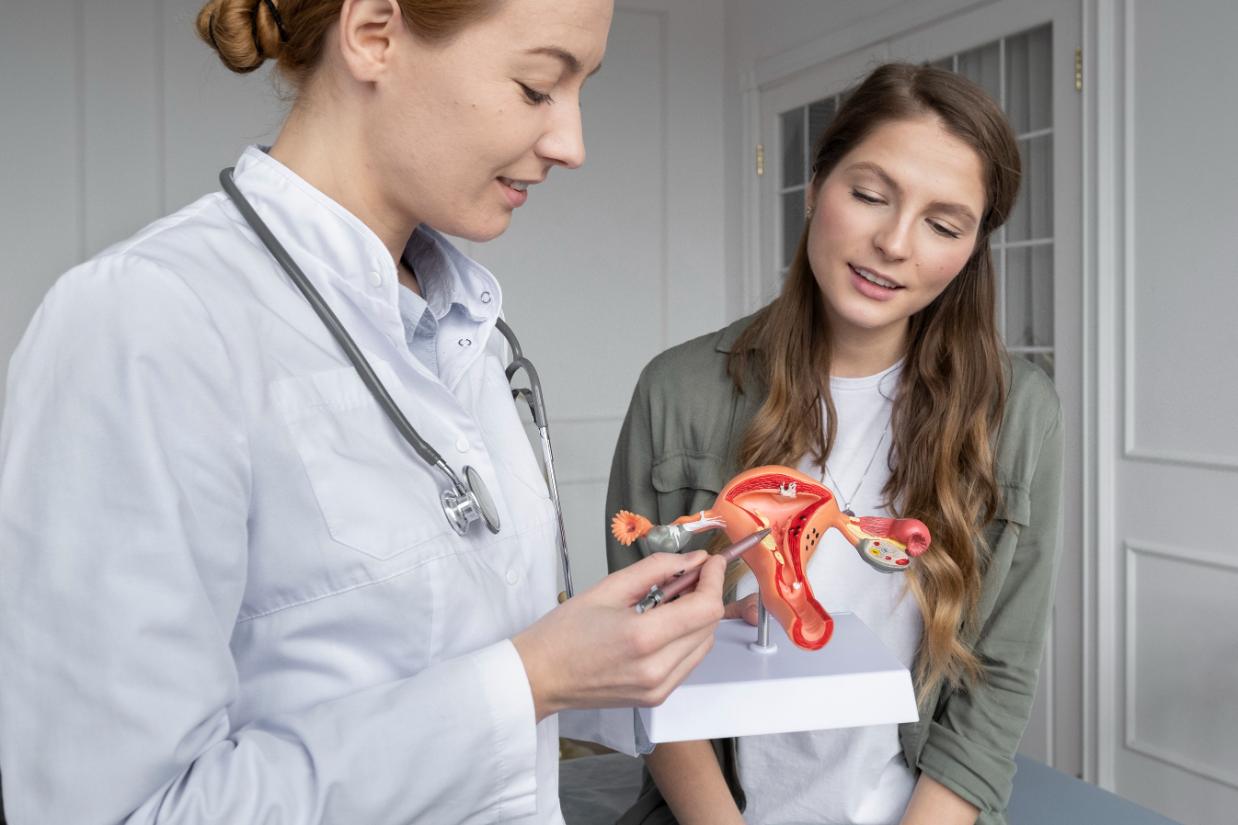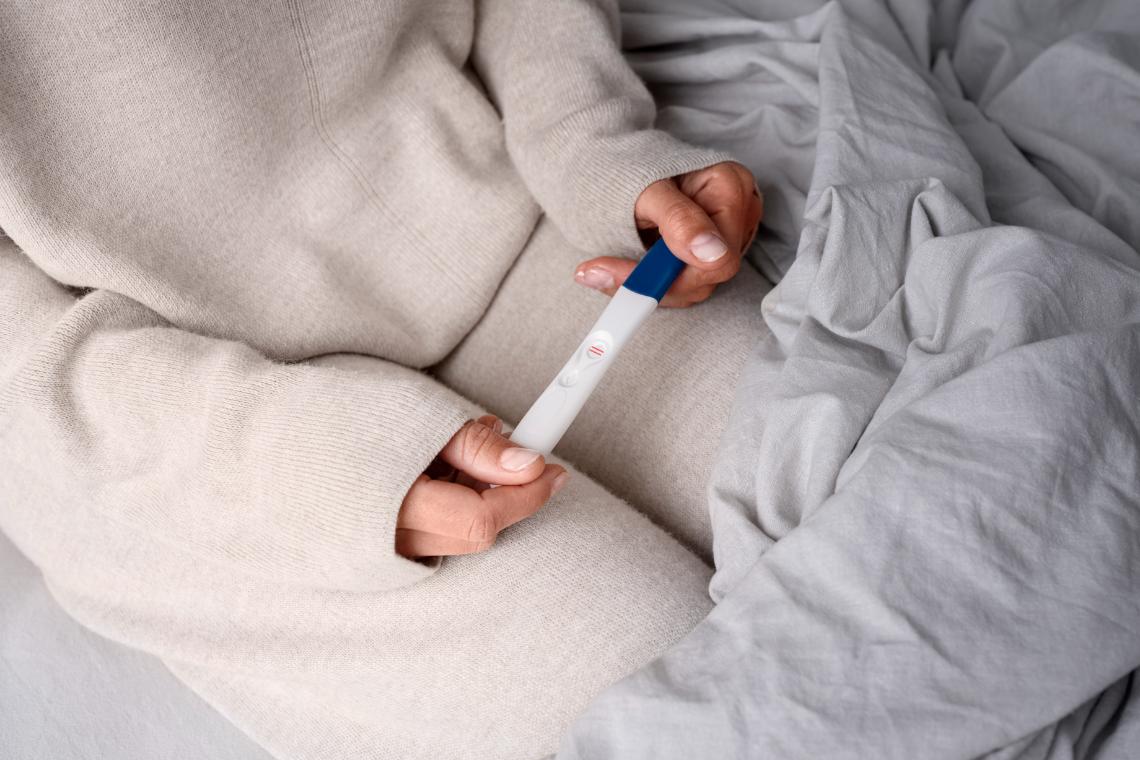
Do you know your menstrual cycle can say a lot about your health? It is better to be informed as to how to start tracking your menstrual cycle and check if there are any irregularities. Do you know when your last menstrual period started and the number of days it lasted? If not, it might be time to start paying attention. Keeping a tab on your menstrual cycle helps you understand what the normal pattern for your body is and helps you notice important changes such as a missed period or bleeding in-between periods. Though menstrual cycle irregularities like painful periods and irregular periods aren’t usually serious, sometimes they can signal underlying health disorders, including problems getting pregnant. As your body transitions to older age and menopause, your changes in the hormone levels may heighten or lower your risk for chronic diseases. Regular periods between puberty and menopause mean your body is working as it is supposed to be. Let’s understand what actually menstrual period is.
The menstrual cycle is the monthly series of changes a woman’s body goes through in preparation for the possibility of pregnancy. Each month, one of the ovaries releases an egg (ovulation). At the same time, hormonal changes prepare the uterus for pregnancy. If ovulation takes place and the egg is not fertilized, the lining of the uterus sheds it through the vagina. This is a menstrual period.
Emotional, mental, and physical health:
Throughout the length of your menstrual cycle, the hormones which influence your menstrual cycle can also affect other factors of your health – emotionally, mentally, and physically.
In the first half of your cycle, you may be feeling full of energy. Your memory may be better and your pain tolerance may be higher during these weeks
Also Read: How Stress Can Hurt Your Chances of Having a Baby?
In the second half of your cycle, you may be feeling dull and forgetful. If you are already suffering from a health disorder like depression, irritable bowel syndrome, migraine, or asthma, your symptoms may get worse right before your period begins. If you have diabetes, your glucose levels may be hard to be brought under control. It may be in extremes, either higher or lower than usual. This is more commonly found in women who get premenstrual symptoms. As the brain chemical, setronin drops, along with the changing glucose levels, you may crave sugary and starchy food. Some menstrual cycle-related problems may lead to health issues. Moreover, there will be variability in the intensity of some health disorder at certain times of your menstrual cycle. Anemia: Heavy bleeding is the principal cause of iron deficiency anemia in women of child-bearing age. Anemia occurs when the bloods cannot supply adequate amount of oxygen to different part of the body as the body does not have enough iron. Symptoms of anemia include feeling pale, tired or weak.
Anemia: Heavy bleeding is the principal cause of iron deficiency anemia in women of child-bearing age. Anemia occurs when the bloods cannot supply adequate amount of oxygen to different part of the body as the body does not have enough iron. Symptoms of anemia include feeling pale, tired or weak.
Asthma: Intensity of an asthma attack may be high during some parts of your menstrual cycle.
Depression: Women with a tendency towards getting depressed are more likely to have premenstrual symptoms. Symptoms of depression may set in towards the period of menstrual cycle.
Diabetes: Women with irregular menstrual cycles, particularly those that go beyond 40 days, have higher chances of getting type 2 diabetes. Younger women between 18 and 22 with irregular periods are even more at risk. Polycystic ovary syndrome (PCOS) may be the link between irregular periods and diabetes. Women with polycystic ovary syndrome are generally found to have problems with insulin and are at risk of getting type 2 diabetes.
Heart disease and stroke: If you are having amenorrhea or reached menopause, your ovaries may no longer produce estrogen. Estrogen protects your body in more ways than one, including against heart disease and stroke.
Osteoporosis: Without estrogen from your ovaries, you are at risk of losing bone mass. Osteoporosis is a condition that causes your bones to become brittle, weak and easily breakable.
Problems getting pregnant: Some conditions that lead to period irregularities can lead to infertility. For e.g. endometriosis, uterine fibroids, or polycystic ovary syndrome.
Also Read: Breast Pain During Pregnancy: Causes & Remedies
Body Weight And Menstrual Cycle
Your body weight can have bearing on all facets of your life, including your menstrual cycle.
Being underweight: If you are underweight the fat level of your body may be low, which may lead to stop ovulating and in turn will lead to irregular periods or no periods at all. Women with eating disorder may have below-normal body weight. If you are not ovulating, it means your body does not have normal hormone levels, like estrogen. Below-normal estrogen levels between puberty and menopause may lead to serious health issues.
Being overweight: If your body weight is above the ideal, you are more likely than a woman of healthy weight to have irregular periods or no periods at all. It may affect even pregnancy. Apart from your ovaries, your fat cells may also make estrogen. Too much of estrogen can adversely affect your body. This can prevent you from ovulating and having a monthly period.
Also Read: What is Egg Freezing and its Benefits?
Tracking The Menstrual Cycle
- Duration of the period: Longer or shorter than usual
- Flow: Is it lighter or heavier than usual? Check the frequency of changing sanitary pad. Look out for any blood clots as well
- Abnormal bleeding: Look for any bleeds in-between periods
- Pain: Describe if the pain associated with periods is worse than usual.
- Other changes: Unexplained mood swings
Tips To Ensure You Have A Healthy Menstrual Cycle
- Your menstrual cycle should be between 25-35 days long
- When you get your period, the blood should be bright red color (somewhat similar to cranberry juice)
- Your cervical fluid will change throughout your cycle (have you ever noticed that once your period gets over, you tend to feel a dry sensation? It’s then that you are producing very little cervical fluid. This is because of low estrogen level)
- You should only bleed during your period and not at other times in your cycle
KJK Hospital is the best infertility hospital in Kerala, with a strong commitment to helping couples achieve their dream of parenthood. KJK Hospital offers a comprehensive range of infertility treatments, including IVF treatment, microsurgical sperm aspiration treatment, gamete intrafallopian tube transfer treatment, IUI treatment, and more. Their dedicated team of medical professionals and experts in the field of reproductive medicine work tirelessly to provide personalized care tailored to each patient’s unique needs. Choose KJK Hospital as your trusted partner in your fertility journey, and let us help you turn your dreams of parenthood into a reality.
For more information and appointments, feel free to contact us now!
Phone Numbers: 0471-2544080, 2544706
Email: info@kjkhospital.com





